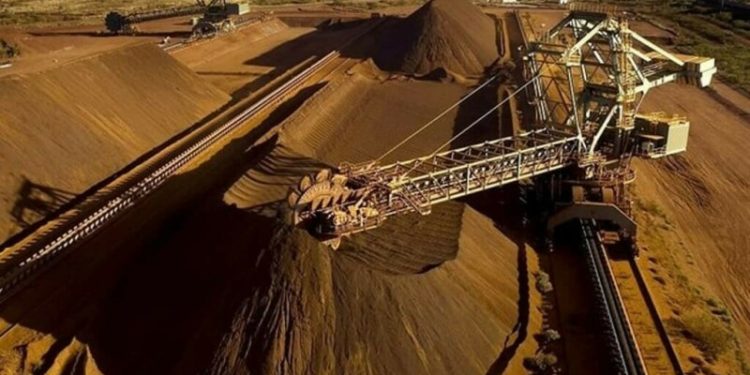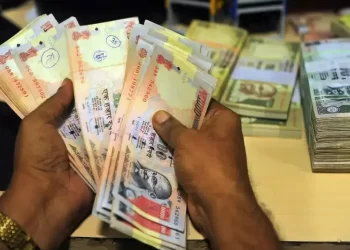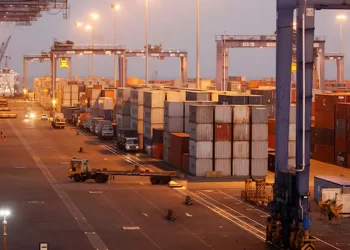SINGAPORE: Iron ore futures prices fell for a second straight session on Friday and were set for a weekly decline, as investors weighed weakness in China’s property sector against firmer steel output.
The most-traded January iron ore contract on China’s Dalian Commodity Exchange (DCE) ended morning trade 1.84% lower at 745.5 yuan ($103.06) a metric ton, declining 4.97% so far this week.
The benchmark December iron ore on the Singapore Exchange was 0.83% lower at $97.45 a ton, as of 0330 GMT, falling 4.18% so far this week.
China’s new home prices in October fell the most year-on-year since 2015, while property investment declined 10.3% in the first 10 months of 2024 after dropping 10.1% in the January-September period, official data showed.
The weaker readings suggest a barrage of support measures announced by China to stabilise its crisis-hit property sector has had little impact so far.
Still, analysts say Beijing’s recent burst of economic stimulus has boosted sentiment and improved demand in the country’s steel market, which saw crude steel output rise 6.2% in October from September to end a four-month slide.
Iron ore retreats on firmer supply
There has been a pick-up in steel and iron ore demand from non-property sectors, and rising Chinese steel exports could also provide some support, ANZ analysts said in a note.
“With Beijing quite open about keeping its powder dry ahead of potentially higher tariffs in 2025, we think the possibility of additional stimulus measures is high. This should keep sentiment in the iron ore and steel industry relatively buoyant,” ANZ said.
Other steelmaking ingredients on the DCE traded sideways, with coking coal down 0.39%, while coke was up 0.1%.
Steel benchmarks on the Shanghai Futures Exchange posted losses. Rebar dropped 1.74%, hot-rolled coil shed nearly 1.3%, wire rod dipped 0.2% and stainless steel declined 0.45%.
SINGAPORE: Iron ore futures prices fell for a second straight session on Friday and were set for a weekly decline, as investors weighed weakness in China’s property sector against firmer steel output.
The most-traded January iron ore contract on China’s Dalian Commodity Exchange (DCE) ended morning trade 1.84% lower at 745.5 yuan ($103.06) a metric ton, declining 4.97% so far this week.
The benchmark December iron ore on the Singapore Exchange was 0.83% lower at $97.45 a ton, as of 0330 GMT, falling 4.18% so far this week.
China’s new home prices in October fell the most year-on-year since 2015, while property investment declined 10.3% in the first 10 months of 2024 after dropping 10.1% in the January-September period, official data showed.
The weaker readings suggest a barrage of support measures announced by China to stabilise its crisis-hit property sector has had little impact so far.
Still, analysts say Beijing’s recent burst of economic stimulus has boosted sentiment and improved demand in the country’s steel market, which saw crude steel output rise 6.2% in October from September to end a four-month slide.
Iron ore retreats on firmer supply
There has been a pick-up in steel and iron ore demand from non-property sectors, and rising Chinese steel exports could also provide some support, ANZ analysts said in a note.
“With Beijing quite open about keeping its powder dry ahead of potentially higher tariffs in 2025, we think the possibility of additional stimulus measures is high. This should keep sentiment in the iron ore and steel industry relatively buoyant,” ANZ said.
Other steelmaking ingredients on the DCE traded sideways, with coking coal down 0.39%, while coke was up 0.1%.
Steel benchmarks on the Shanghai Futures Exchange posted losses. Rebar dropped 1.74%, hot-rolled coil shed nearly 1.3%, wire rod dipped 0.2% and stainless steel declined 0.45%.









